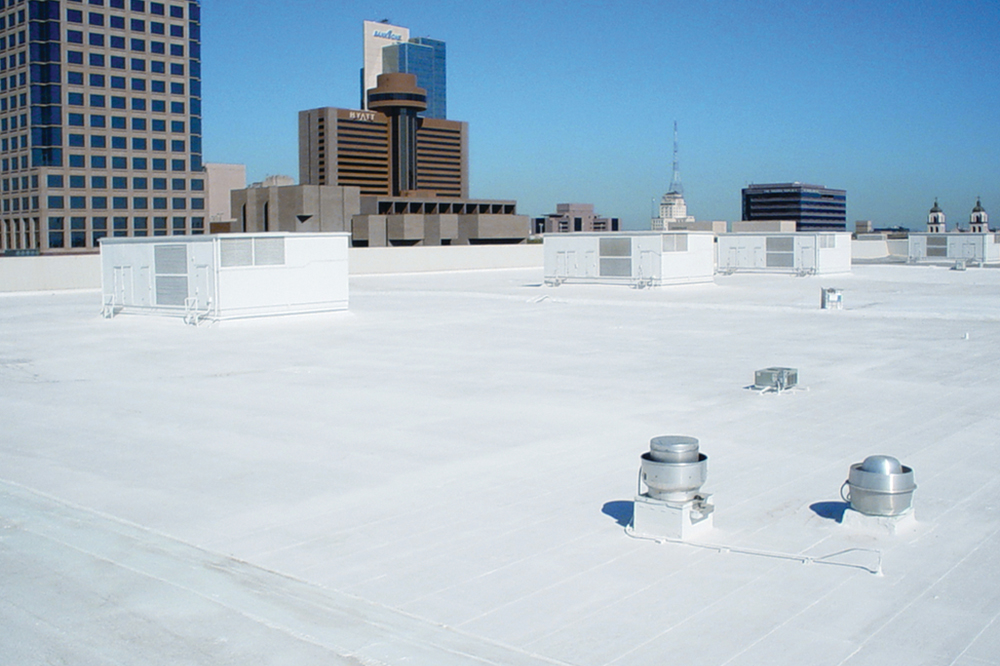
The Importance of Proper Drainage Systems in Flat Roofs Across DFW

Introduction
Flat roofs are a common architectural choice across the Dallas-Fort Worth (DFW) area, particularly for commercial buildings. Despite their aesthetic appeal and efficient use of space, flat roofs come with unique challenges, especially concerning drainage. Without proper drainage systems, these roofs can lead to significant issues, including leaks, water pooling, and structural damage. This article delves into The Importance of Proper Drainage Systems in Flat Roofs Across DFW, discussing why effective drainage is crucial for maintaining the longevity and integrity of flat roofing systems.
The Importance of Proper Drainage Systems in Flat Roofs Across DFW
In a region like DFW, where rainfall can be unpredictable yet heavy at times, ensuring that flat roofs have a proper drainage system is non-negotiable. Poor drainage can lead to various complications such as:
Understanding Flat Roofing Systems
Flat roofing systems differ significantly from sloped ones in terms of design and functionality. They require specialized knowledge from commercial roofing contractors who understand how to manage water effectively.
Types of Flat Roofing Materials
Each type has its specific requirements for drainage design which must be adhered to ensure optimal performance.
Why Proper Drainage is Essential
Preventing Water Pooling
Water pooling is one of the most common issues faced by flat roofs in DFW due to inadequate drainage systems. When water accumulates on a roof surface, it can lead to:
- Increased weight stress
- Structural compromises
- Potential leaks
Mitigating Long-term Damage
Investing in proper drainage not only prevents immediate issues but also mitigates long-term damage that could result in costly repairs down the line.
Enhancing Roof Longevity
A well-designed drainage system contributes directly to the lifespan of your flat roof by preventing both standing water and moisture-related problems.
Common Types of Drainage Systems for Flat Roofs
There are several effective drainage systems tailored specifically for flat roofing:
Interior Drains
Located within the building’s interior, these drains channel water toward downspouts.
Scupper Drains
These external drains allow water to exit from the side of the building.
Gutters and Downspouts
While more typical in sloped roofs, gutters can also be adapted for use in low-slope flat roofing systems.
Factors Affecting Drainage System Design
Several elements influence how a drainage system should be designed:
1. Roof Size and Design
The slope or pitch of a flat roof directly affects how quickly Roofing and Fencing Restoration Specialists in Dallas-Fort Worth water drains away from its surface.
2. Local Weather Patterns
In areas like DFW where rainstorms are prevalent, designing a robust system is essential.
3. Building Codes
Local regulations may dictate specific requirements for drainage systems that must be followed by commercial roofing companies.
The Role of Commercial Roofing Contractors
When it comes to implementing effective drainage solutions on flat roofs, hiring experienced commercial roofing contractors like SCR, Inc., General Contractors in DFW becomes essential. Here's what they offer:
1. Expertise in Design
They understand local weather patterns and building codes which allows them to create customized solutions tailored specifically to your needs.
2. Quality Materials
Using high-quality materials ensures that your roofing will stand up against Texas storms while providing adequate protection against leaks.
3. Regular Maintenance Services
Routine Specialized Roof Tarping Solutions for Hail or Wind Damage in DFW inspections help catch potential issues before they escalate into emergencies requiring extensive repair work or emergency tarping services.
Signs Your Flat Roof Needs Repair
Being vigilant about your flat roof's condition can save you time and money later on:
1. Visible Water Accumulation
If you notice standing water after rainfall, it’s time to consult with professionals about your drainage options.
2. Interior Leaks
Ceiling stains or peeling paint inside your building may indicate a leak originating from your flat roof.
3. Damaged Roofing Material
Cracks or blisters on the surface are telltale signs that maintenance is necessary.

FAQ Section
Q1: What causes ponding on my flat roof?
Ponding occurs when there’s insufficient slope or an obstructed drain preventing water from flowing off effectively.
Q2: How often should I inspect my flat roof?
It’s advisable to conduct inspections at least twice a year—ideally before winter and after heavy rainfall events.
Q3: Can I install my own drainage system?
While DIY projects are appealing, Experienced Dallas Roofers for Commercial and Residential Projects it’s best left to specialists who understand local codes and best practices for installation.
Q4: What materials do I need for my commercial roof repair?
You will typically need membrane materials appropriate for your specific roofing type along with sealing compounds and fasteners; consulting with SCR Inc., General Contractors will provide clarity on this matter!
Q5: How do I know when it's time for an upgrade?
If repairs become frequent or costly, consider upgrading your entire system instead; newer materials often come with better warranties!

Q6: What should I consider when hiring a commercial roofing company?
Look for experience with local projects similar to yours alongside strong customer reviews; SCR Inc., General Contractors excels in these areas!
Conclusion
In summary, understanding The Importance of Proper Drainage Systems in Flat Roofs Across DFW cannot be overstated. With seasonal rains being a regular occurrence in Texas weather patterns coupled with other factors unique to our region—having an expert team like SCR Inc., General Contractors readily available ensures that both new constructions as well as existing structures remain protected against potential damage caused by poor drainage practices!
For all your commercial roofing needs—from installations through ongoing maintenance—trust experts who prioritize quality service above all else! Don’t wait until it’s too late; contact us today!